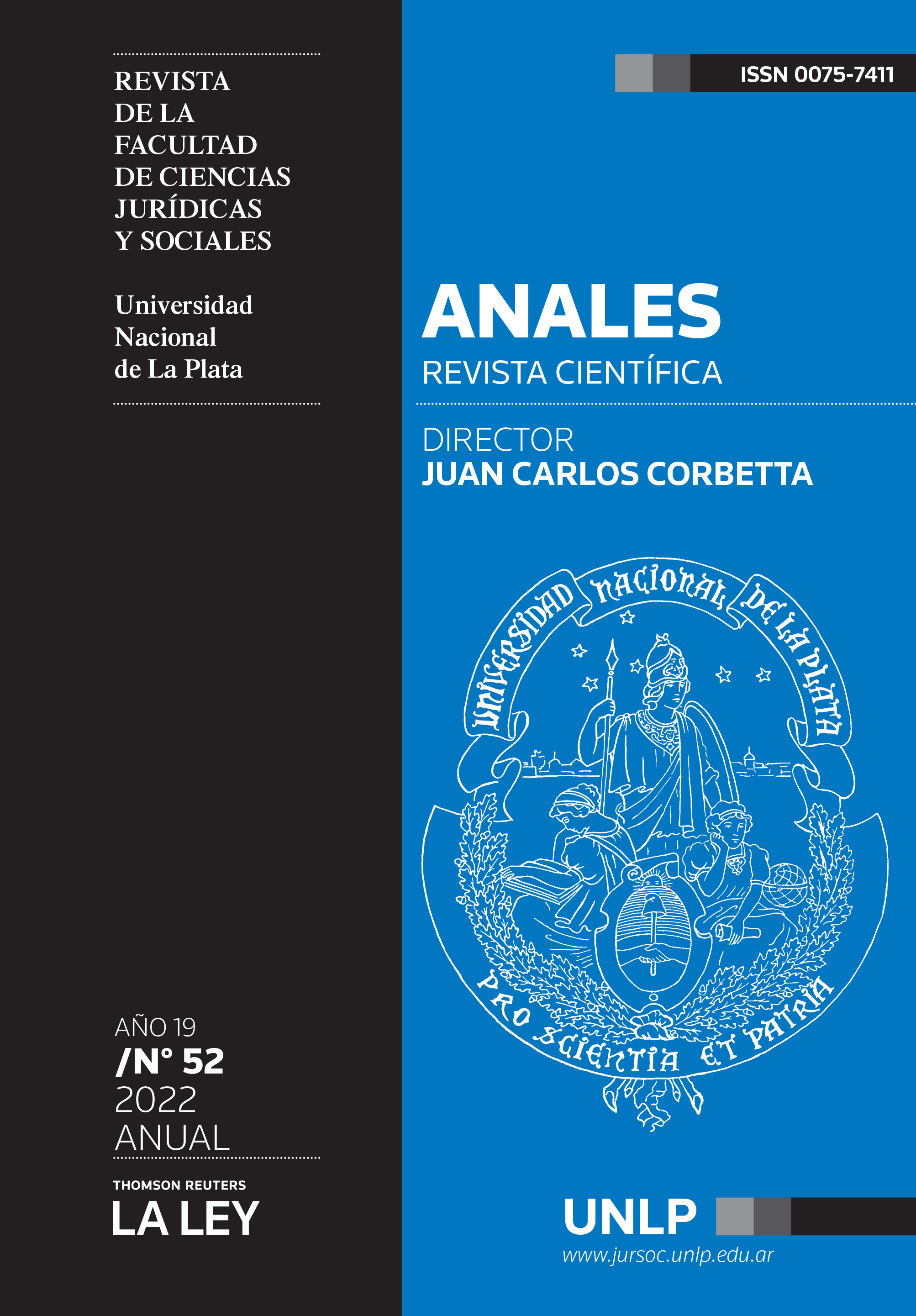Current landscape of crypto arbitral tribunals: Obstacles and legal considerations
DOI:
https://doi.org/10.24215/25916386e133Keywords:
blockchain, crypto courts, alternative dispute resolution, KlerosAbstract
The ecosystem of new technologies that has developed in recent years has brought with it disruptive innovations that are drastically transforming law and, specifically, international arbitration. The creation of crypto arbitral courts that operate on a public blockchain is a controversial idea that generates discussion between the academic community and legal operators. However, under the principle of party autonomy, this type of arbitration is a reality that cannot be ignored. The objective of this work was to analyze the legal scope of this new way of resolving conflicts, taking the Kleros platform as a case study. It is concluded that despite the various challenges faced by crypto arbitral tribunals, they change the paradigm of administration of justice today, which adapts to this new digital age, resolving conflicts that by their nature are very unlikely to come to fruition. courts such as those related to e-sports or the metaverse.
Downloads
References
Asociación Española de Video Juegos (2017). Libro blanco de los esport en España. http://www.aevi.org.es/web/wp-content/uploads/2018/05/ES_libroblanco_online.pdf
Asociación Española de Video Juegos (2020). La industria del videojuego en españa. Anuario 2020. http://www.aevi.org.es/web/wp-content/uploads/2021/04/AEVI_Anuario_2020.pdf
Ast, F. (2021). Webinar Internacional: Kleros justicia descentralizada y tecnología blockchain. https://www.youtube.com/watch?v=N96wsh7yfII [Video].
Banco Central Europeo (2019) Crypto-Assets. Trends and Implications. https://www.ecb.europa.eu/paym/intro/mip-online/2019/html/1906_crypto_assets.en.html
Buterin, V. (2014). A next-generation smart contract and decentralized application platform. White book, (3)37.
CNUDMI (2006). Ley Modelo de la CNUDMI sobre Arbitraje Comercial Internacional. https://uncitral.un.org/sites/uncitral.un.org/files/media-documents/uncitral/es/07-87001_ebook.pdf
De Trazegnies, F. (1996). Arbitraje de Derecho y Arbitraje de Conciencia. Ius et veritas, (12) (pp. 115-124).
Dilag, M. y Smith, H. (2021). From cryptocurrencies to crypto courts: blockchain and the financialization of dispute resolution platforms. Information, Communication and Society.https://doi.org/10.1080/1369118X.2021.1942958
Katsh, E. y Rabinovich-Einy, O. (2017) Digital Justice: Technology and the Internet of Disputes. Oxford Scholarship Online.
Kleros (2022). Acerca de Kleros. http://kleros.io/es/about/
Law Commission (2021). Smart legal contracts. Advice to Government. HH Associates Ltd. On behalf of the Controller of Her Majesty´s Stationary Office, UK.
Lew, J. (2005). Is Arbitration Autonomous. Arbitration International, 22(2) (pp. 179-182).
Michaels, R. (2021). Achieving the Dream: Autonomous Arbitration. The Cambridge Companion to International Arbitration.
Molina, D. (2020). ¿Las Nuevas Tecnologíss Extinguirán El Sistema Arbitral? Kleros: Una Mirada Al Futuro Del Arbitraje Internacional. http://arbitrationblog.kluwerarbitration.com/2020/09/30/las-nuevas-tecnologias-extinguiran-el-sistema-arbitral-kleros-una-mirada-al-futuro-del-arbitraje-internacional/
Montero, A. (2020). Breves consideraciones sobre el arbitraje en equidad. Avani, No. 1 (pp. 435-452).
Nakamoto, S. (2008). Bitcoin: A Peer-to-Peer Electronic Cash System. www.bitcoin.org/en/bitcoin-paper
Pombo, V. (2021) ¿Qué diferencia hay entre un token y una criptomoneda? https://www.bbva.com/es/que-diferencias-hay-entre-un-token-y-una-criptomoneda/
Silva, J. (1991). Arbitraje comercial internacional Mexicano. Universidad Autónoma de Ciudad Juárez.
Sevilla, A. (2016). Teoría de juegos. https://economipedia.com/definiciones/teoria-de-juegos.html
Tapia, A. (2020). Decálogo de la nueva regulación europea del crowfunding. Diario La Ley, N. 9730.
Tenorio, A y Martín, A. (2015). Un paseo por la historia de la Teoría de Juegos. Boletín de Matemáticas, 22(1) (pp. 77-95).
Veciño, S. (2021). Cuestiones Jurídicas sobre los e-sports y los jugadores profesionales de videojuegos. Tesis de Doctorado, Facultad de Derecho, Universidad Da Coruña.
Vijayan, S. (2022). Autonomous Arbitration in the Era of the Metaverse. http://arbitrationblog.kluwerarbitration.com/2022/03/11/autonomous-arbitration-in-the-era-of-the-metaverse/
Von Neumann, J y Morgestern, O (1944). The Theory of Games and Economic Behavior. Princeton University Press.
Yaga, D., P. Mell, N. Roby y K. Scarfone (2018). Blockchain Technology Overview. NISTIR 8202 (DRAFT). NIST. https://csrc.nist.gov/publications/detail/nistir/8202/draft
Published
How to Cite
Issue
Section
License
Copyright (c) 2022 Wendolyne Nava González, Nuria González Martín

This work is licensed under a Creative Commons Attribution-NonCommercial-NoDerivatives 4.0 International License.
Esta licencia no permite la generación de obras derivadas ni hacer un uso comercial de la obra original, es decir, sólo son posibles los usos y finalidades que no tengan carácter comercial.






























